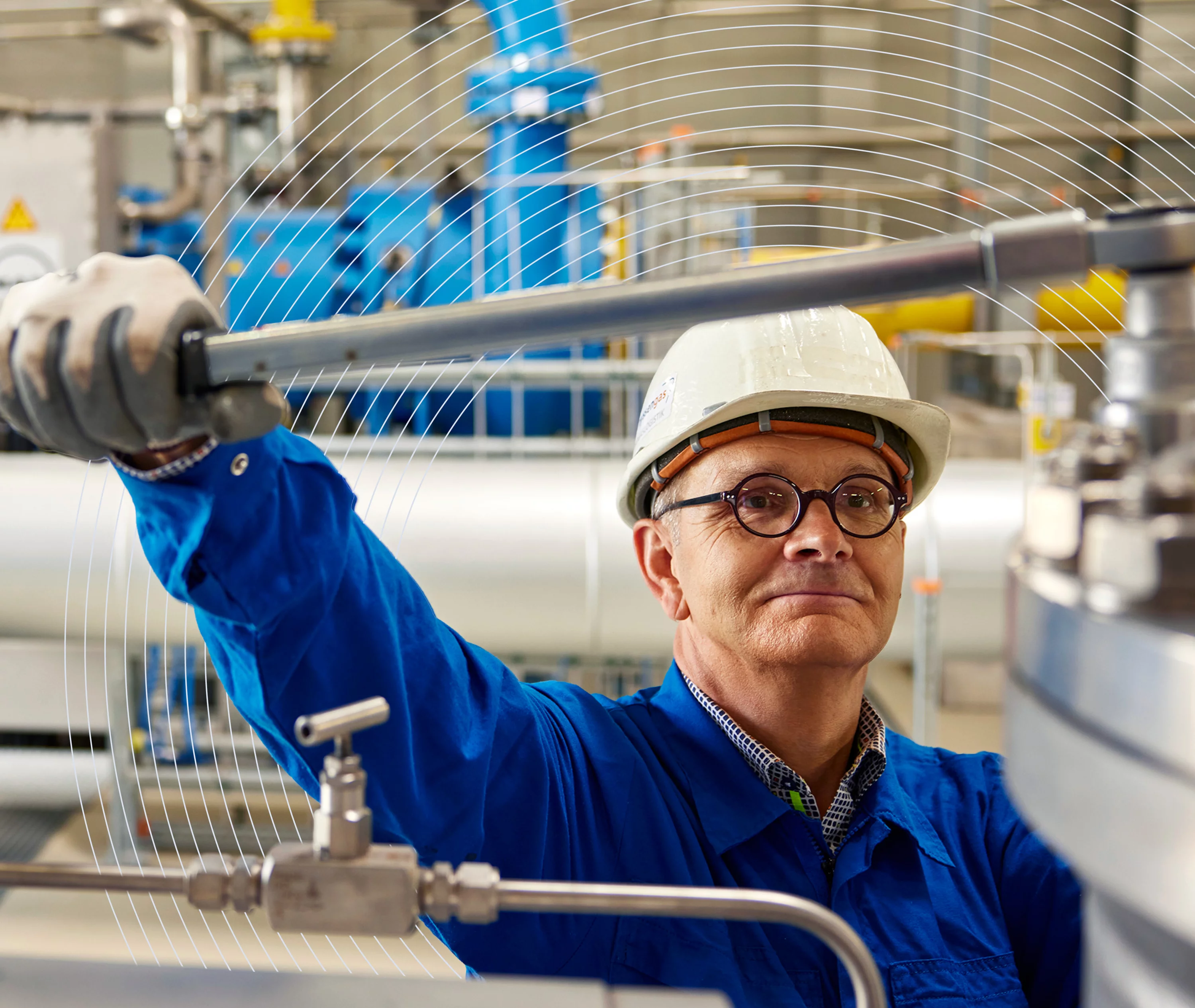While we see our entrepreneurial future in the transport of green gases such as hydrogen and biogas, we also keep an eye on the present. After all, our existing business also offers opportunities for improvement that have a positive impact in the here and now. Who better to report on this than those who implement sustainability in our company? On this page you will find examples of how our employees are reducing emissions and environmental impact.
Avoidance of methane emissions
If work needs to be carried out on our pipelines, gas must be removed from them for safety reasons. We use a combination of technical measures to prevent this gas from escaping into the environment. As a result, emissions can often be reduced by more than 95 %. We also use modern measuring devices to continuously monitor our pipeline infrastructure. Because we can only reduce efficiently what we can quantify well.
Minimally invasive tree root inspections
Trees with large roots can cause damage to our pipeline infrastructure and therefore pose a safety risk to employees and people in the vicinity. In order to prevent such a risk by avoiding damage to the roots, we are trialling a non-invasive, above-ground method that allows us to check the location of roots without having to expose them. In this way, we can significantly reduce the impact on the environment and the disruption to urban traffic.
Use of renewable energies
For several years now, we have been procuring electricity exclusively from renewable sources for our electricity-powered compressor systems. In 2023, we also increased the use of biogas as a sustainable alternative to fossil natural gas in our gas-powered compressors from an initial four to around eleven million kilowatt hours, thereby achieving a significant reduction in emissions. In 2024, we will procure 15 million kWh of biogas, and in 2025 even 30 million. Our biogas comes from waste and residual materials, liquid manure, kitchen and canteen waste, straw and dry manure and fulfils the sustainability criteria of the EU's Renewable Energy Directive (2018/2001/EC - RED II).
Feeding biogas into our network
As an independent transport network operator (ITO), we have no influence on the origin and production process of the gas in our pipelines. We therefore do not own the gas. Nevertheless, we make our contribution and therefore co-operate closely with biogas plant operators in order to find the technically and economically optimal solution for integration into our grid. We currently feed biogas into our grid from four feed-in plants. Three further plants are already under construction and six are in the concrete planning stage. The main advantage of biogas for us as a transmission system operator is that no adjustments need to be made to the existing pipeline network in order to transport it.




